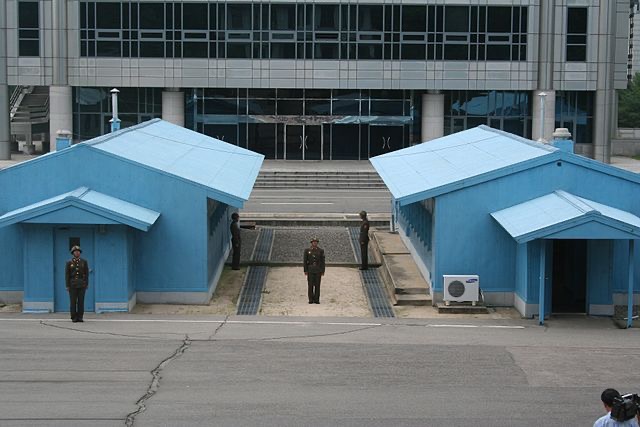Tensions on the Korean Peninsula reached a new high on April 8, 2025, after South Korea’s military fired warning shots at North Korean soldiers who briefly crossed the Military Demarcation Line (MDL) within the heavily fortified Demilitarized Zone (DMZ). This rare and dangerous encounter occurred in the eastern sector of the border region and immediately raised alarms among regional security experts, prompting urgent monitoring by international observers.
The incident—though quickly contained—serves as a stark reminder of how fragile peace remains between North and South Korea. As political instability looms in Seoul and North Korea continues military provocations, this incursion could mark the beginning of another chapter of high-stakes brinkmanship between the two neighbors.
What Happened at the DMZ?
According to reports from South Korea’s Joint Chiefs of Staff, approximately ten North Korean soldiers briefly crossed the MDL into South Korean territory around 5:00 PM local time. The soldiers reportedly advanced a short distance before being met with verbal warnings and eventually warning shots fired by South Korean forces stationed nearby.
The North Korean troops then retreated back across the demarcation line without returning fire or escalating the situation further. No injuries or damage were reported, and the situation de-escalated quickly following the exchange.
While the incident was resolved without direct conflict, the seriousness of a military incursion across one of the most volatile borders in the world cannot be overstated. This zone has long been a flashpoint in global security, and even minor missteps have the potential to spiral into dangerous confrontations.
The Military Demarcation Line Explained
The MDL is the de facto border separating North and South Korea. It runs through the middle of the 4-kilometer-wide Demilitarized Zone—a buffer created under the 1953 Korean War Armistice Agreement. Despite its name, the DMZ is one of the most heavily fortified areas on Earth, guarded on both sides by tens of thousands of troops, minefields, watchtowers, and advanced surveillance systems.
Crossing the MDL is a serious breach of military protocol and is typically treated as an act of aggression or a provocation, even if accidental. This is why South Korea responded swiftly and firmly with warning shots.
While there is some ambiguity along certain parts of the border—particularly in wooded or mountainous regions—any unauthorized movement across the MDL is taken extremely seriously by both sides.
Has This Happened Before?
This isn’t the first time North Korean soldiers have crossed into the South. A similar incident took place in June 2024, when a smaller group of troops reportedly wandered across the MDL due to poor visibility and unclear markings. South Korean forces responded with warning shots, and no engagement followed. That event was later deemed accidental by South Korean military analysts.
However, not all past crossings have been so benign. Over the years, North Korea has staged several deliberate provocations at the DMZ, ranging from gunfire exchanges to landmine incidents and even defector pursuits. Each of these incidents has added layers of mistrust and volatility to inter-Korean relations.
What makes the April 2025 incident particularly concerning is its timing amid growing regional tensions and an unstable political situation in South Korea.
North Korea’s Possible Intentions
Military experts and analysts are already debating whether the latest incursion was intentional. Given the scale—ten soldiers crossing the border—it’s unlikely to have been a simple navigation error. Instead, some believe it may have been a form of psychological warfare or an attempt to test South Korea’s military response capabilities amid its ongoing political challenges.
Others suggest the move could be a deliberate signal from North Korean leader Kim Jong Un, who has recently tightened ties with Russia and escalated rhetoric against both the South and the United States. With denuclearization talks at a standstill and international sanctions still in place, Kim may be looking for ways to demonstrate strength or distract from domestic issues.
Whatever the motivation, the act of crossing into South Korean territory, however briefly, will not be taken lightly by Seoul—or by its allies.



